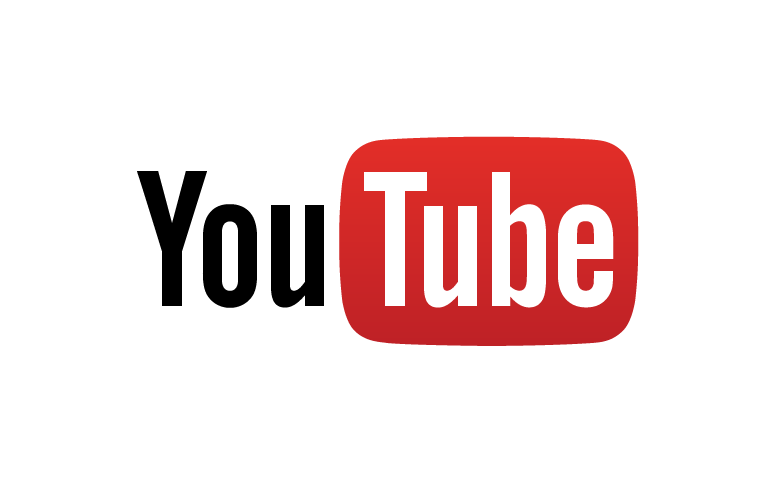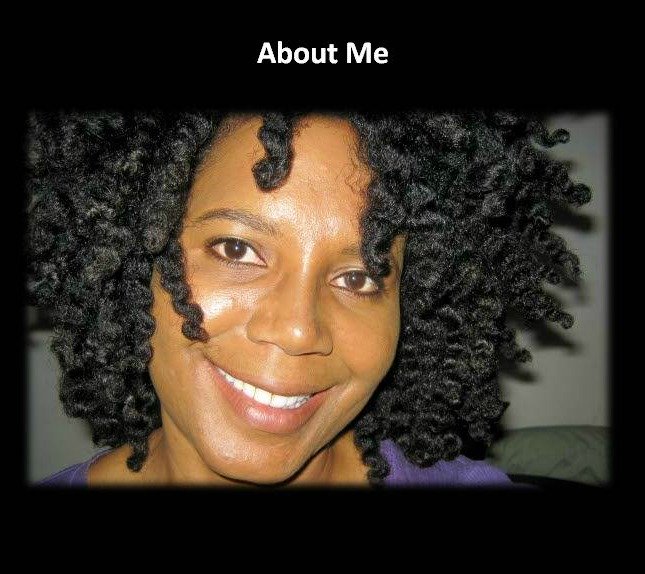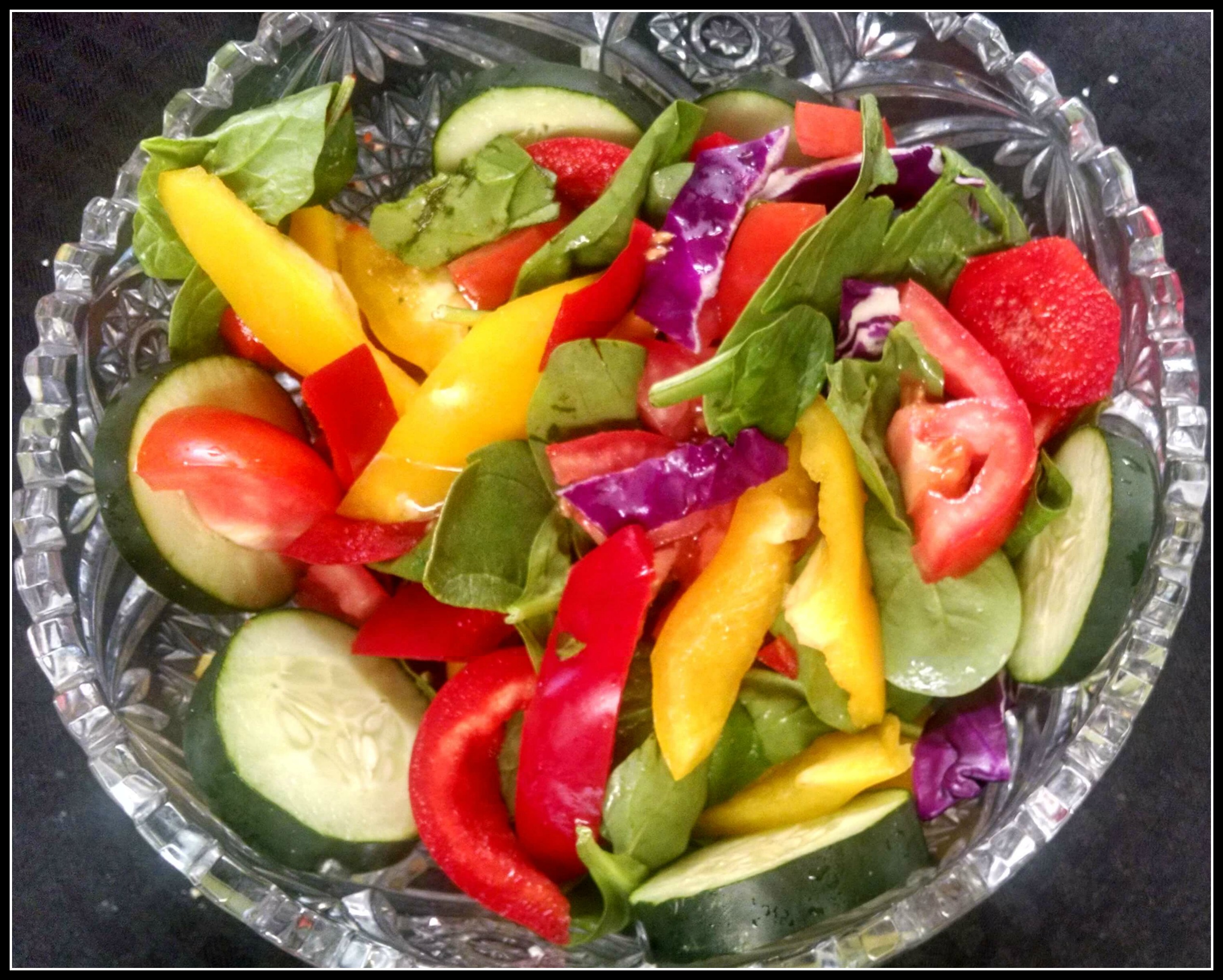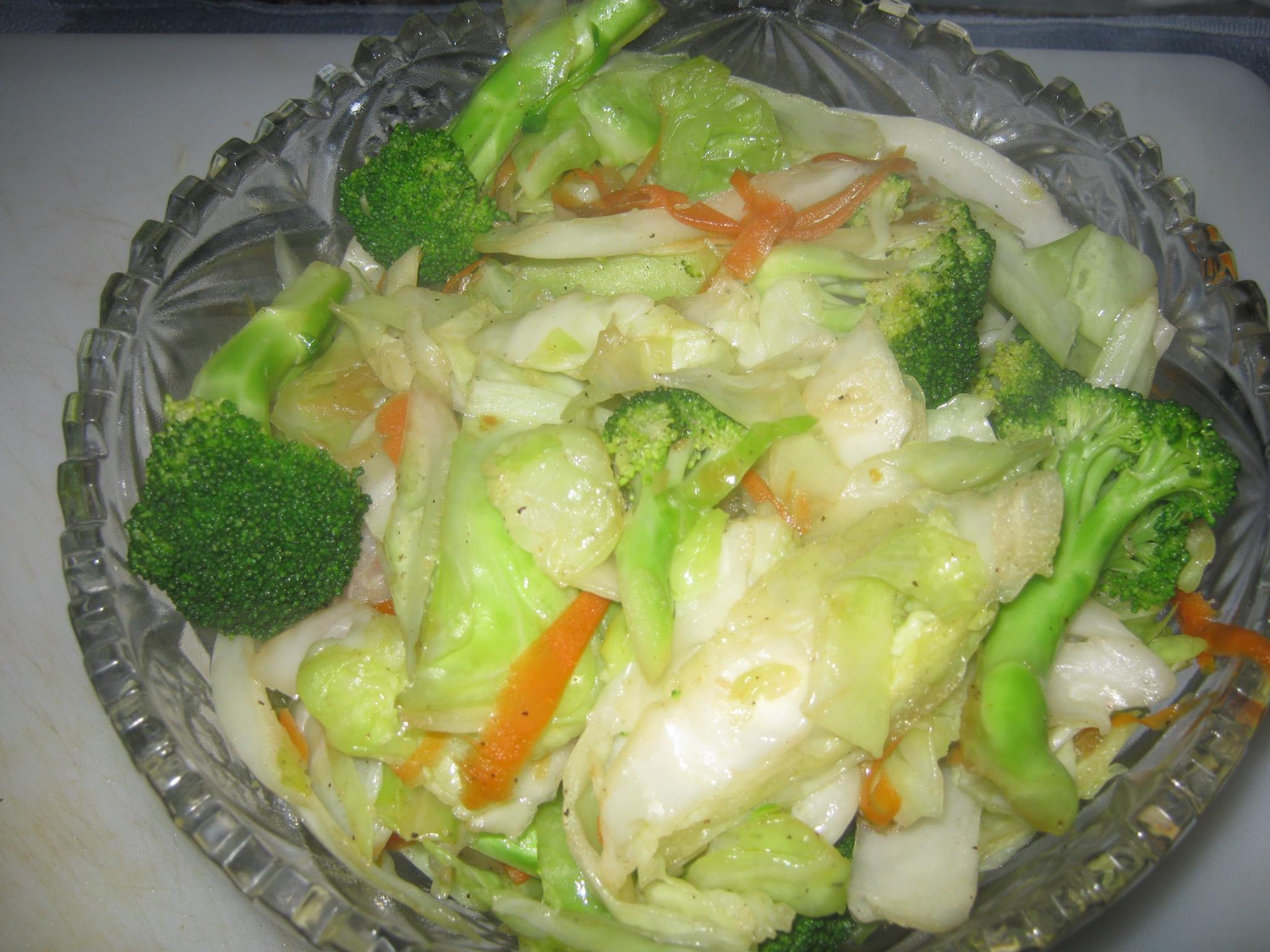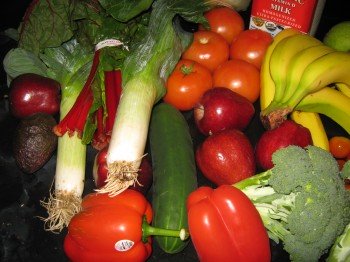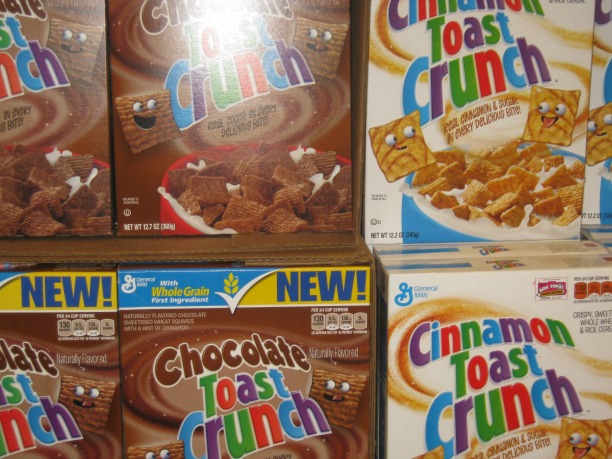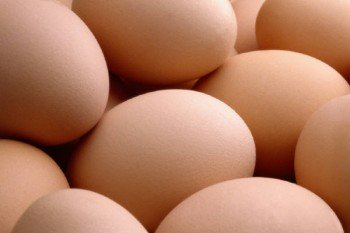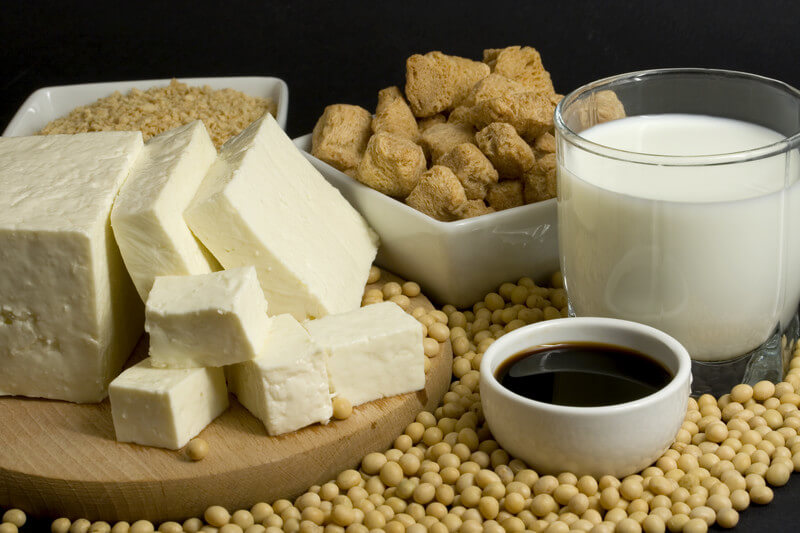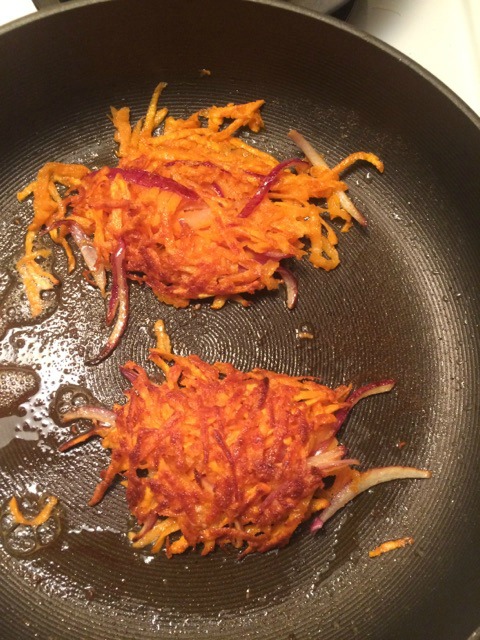How to Navigate A Healthy Vegetarian Diet in Today's Modern World
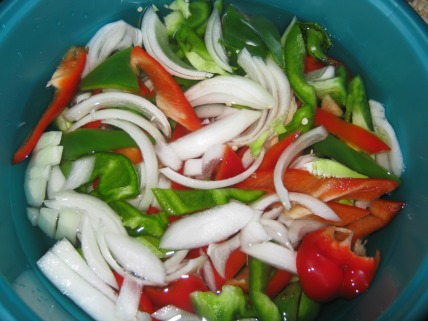
A healthy vegetarian diet requires careful monitoring, and we're going to cover some ground rules to offset any health issues.
Becoming
a vegetarian is a decision that should be made on a
case by case basis. Some people become
very ill on vegan/vegetarian diets.
In The Paleo Solution,
Robb Wolf writes that he became very ill when he became a vegetarian. Once he started
eating animal based protein again, his health blossomed.
A close friend of mine lost clumps of hair when she became a vegan/vegetarian. Her skin turned gray, and she had dizziness and fainting spells. When she started eating small amounts of poultry and fish, her hair grew back and she was fine.
Another close friend developed
prostate cancer and he was certain that it was because of his meat-based diet. He swore off meat and became vegetarian. When I saw him again three months later, he'd lost too much weight that I
almost didn't recognize him.
He soon went back to eating fish, beef and poultry, and has since gained back the weight he lost. He looks ten years younger.
A Healthy Vegetarian Diet Can Include Animal Products
Lacto means milk
Ovo Means Eggs
Click here to learn more about milk nutrition properties
Click here to learn more about egg nutrition
Let's Look at Different Types of Vegetarians
- Lacto-ovo vegetarians can eat eggs and milk, but no meat at all. Lacto-Ovo vegetarians is the largest group of vegetarians.
- Lacto vegetarians can drink milk, cheese and butter products, but they do not eat eggs at all. It's very similar to lacto-ovo, it's just that eggs are omitted.
- Ovo vegetarians can eat eggs. Ovo vegetarians omit all dairy products.
- Vegans do not eat eggs, dairy or fish. Vegans even exclude any food that contains products made from animal meat products, even honey.
- Pescatarian vegetarians are allowed fish. This makes it much easier to obtain high quality protein and protect the brain. Supplement with flax seed oil or a high quality fish oil for added brain protection.
- Flexitarian vegetarians are semi vegetarians. They occasionally eat fish, but do not eat red meat or poultry.
- Fruitarians eat only raw fruit, nuts and seeds. This type of vegetarianism is not recommended because it eliminates essential proteins and fats needed to maintain adequate health. It also excludes extremely important nutrients found only in vegetables with dark, green leaves.
- Raw Foodists eat raw meat and eggs, and drink raw milk and dairy in its natural state.
There are pros and cons to a
plant-based diet.
|
Lierre Keith discusses how she became sick on a vegan diet. |
Dr. Joanne Kong discusses the power of plant-based eating. |
A Healthy Vegetarian Diet Requires Low GI Foods
The single biggest problem with vegetarian diets is a diet high in sugar and
heavily processed grains. Vegetarians tend to eat much higher levels
of grains and sugar, and this is going to cause a sharp increase in the
possibility of cancer and heart disease. Sugar and grains increase
insulin production, and insulin increases the growth of every cancer cell
type.
Click here for an explanation on processed foods
If you're eating heavily
processed grains, you're going to have blood sugar issues, increasing the likelihood of diabetes. Eating a healthy, low glycemic diet with lots of vegetables is very important to offset
diseases like diabetes.
To
complicate matters further, individuals who are gluten intolerant
would have to eliminate grains altogether. This is going to create a
challenge for vegetarians. Being a gluten-free vegetarian requires tremendous commitment.
More Fat, Please
A healthy vegetarian diet requires fat. Your brain is 70 percent
fat, and
you must be certain that you're eating enough fat. Modern food
scientists have discovered that fat is an essential element. Without saturated fat, our bodies
would be in serious trouble.
Americans made a big mistake in the '80s
and '90s going low fat. The low fat theory is based on outdated 1950s Ancel Keys' debunked science. The low fat theory no longer has merit.
Click here to learn more about the benefits of fat.
The navigation of a healthy vegetarian diet requires discipline and
attention to detail. The main challenge for vegetarians is to replace
the protein found in sea food and land animals. Since the biggest challenge vegetarians have is
getting enough protein, we're going to go through how to achieve
proper protein nutrition.
There are
many alternative sources of proteins. Plant proteins are incomplete and
require the combining of different grains to get a complete amino acid
profile. You
need nine essential amino acids in your body every single meal.
If you
do not get this essential protein, your body will begin to tear down
its own tissues to get the protein it needs. This is why many
vegetarians become emaciated. They're not losing weight, they're losing
muscle tissue.
Antiaging diet expert, Dr. Nicholas Perricone, lists lack of protein in the diet as the number one contributor to fast aging.
Beans for A Healthy Vegetarian Diet And Protein Requirements
Eat plenty of black beans, pinto beans and Peruvian beans.
Beans mixed with brown rice will provide all nine amino acids to help
with your complete amino acid profile. Lentils are very high in
proteins, but the proteins they contain are incomplete, and also need to
be combined with a grain.
Click here for our brown rice page.
This Brown Rice, Pinto Beans and Cheese Meal
Below is One of Our Favorite Snacks. It's Quick and Easy!
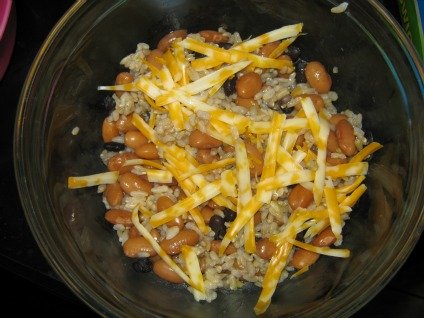
Sources for Vegetarian Protein
Soy is a complete protein.
Many vegetarians use soy as a replacement for meat. There is a lot of
conflict as to whether soy is safe. When we're talking about soy on The
Healthy Diet Paradise, we're always discussing organic, whole, fermented soy
products, not fractionated soy.
Soy is the number one GMO food. Some experts believe that
excessive soy consumption may contribute to Hashimoto's Thyroiditis,
which is thyroid disease.
Click here for more information on Hashimoto's Disease and Soy Consumption.
There can be some pretty severe side effects from eating soy. Please read our page on soy to learn what to look out for.
Quinoa is an excellent source of complete protein. If you like, you can link here to our quinoa recipe.
We made this with poultry. You can leave the poultry off and make this
into an incredible vegetarian recipe.
Healthy Vegetarian Bones
If vegetarians are not careful, they can develop
degenerative bone diseases like osteopenia or osteoporosis. The human
body cannot properly absorb minerals and calcium without the presence of
fat.
Vegetarians have a much higher rate of bone loss. The reason for this is the drastically reduced fat intake. For healthy bones, you're going to need to increase your fat intake a bit. A healthy vegetarian diet requires cashews, walnuts, seeds and avocado. These are superfoods that will supplement your diet.
For vegetarians following our hair loss diet, the question often comes up regarding fish. You can easily maintain a gorgeous head of hair if you're a vegetarian. Just make sure you follow the outline for vegetarian protein.
Healthy Vegetarian Diets & Whole Foods
Vegetarians who consume a whole foods diet, reduce their risk of cancer. A whole foods, plant based diet also minimizes the risk for digestive disorders like IBS and colon cancer.
Careful attention has to be paid, or participants may become disenchanted and not follow the proper healthy vegetarian diet.
This Vegetable Dish Below Features
Purple Cabbage, Broccoli, Celery and Cashew Nuts
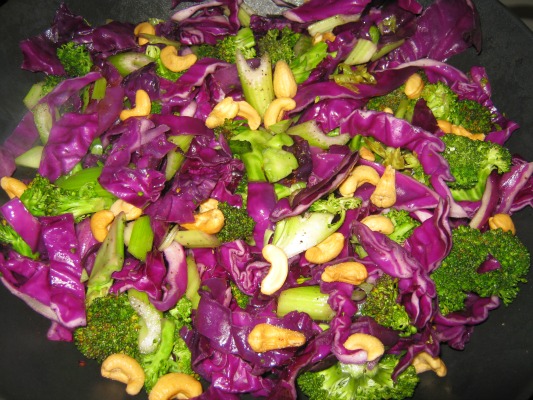
Sheree Gilkey is a participant in the Amazon Services LLC Associates Program, an affiliate advertising program designed to provide a means for sites to earn advertising fees by advertising and linking to amazon.com
